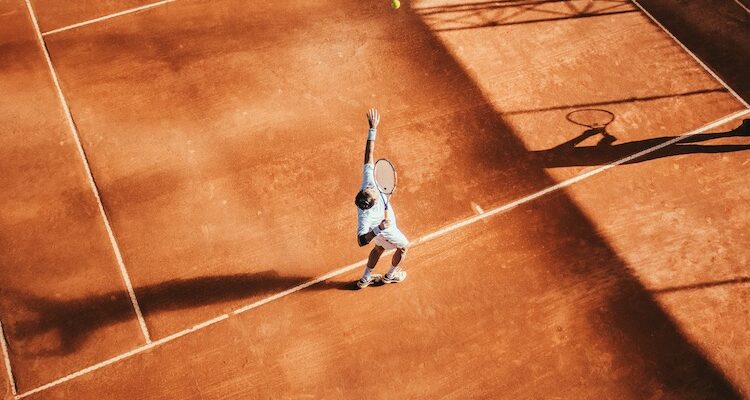Athletes, coaches and sport fans often mistake the difference between superstition, rituals and routines. If you’ve ever watched Rafael Nadal serve, you’ve probably noticed his methodical repertoire of hand gestures and movements. From touching the back and front of his shorts, then his shoulders, nose, ears, and eventually his thighs. In his autobiography, Nadal writes, “Some call it superstition, but it’s not. If it were superstition, why would I keep doing the same thing over and over whether I win or lose? It’s a way of placing myself in a match, ordering my surroundings to match the order I seek in my head.” In sports it is critical for athletes and coaches to understand and distinguish the difference between superstitions, rituals, and routines.
[Read more…] about The difference between superstition, rituals, and routinesSpotlight on Athlete Vulnerability
Athlete vulnerability is not a topic that we hear much about as athletes, coaches and sport performance consultants. Athletes are typically encouraged to be “mentally tough”, to “push through the pain”, and gratefully make personal sacrifices for the “good of the team”. But at what cost? Where is the line? Where are the guard rails protecting the athletes in a competitive culture that prioritizes winning over mental health and gives coaches the authority to torture athletes in pursuit of victory?
[Read more…] about Spotlight on Athlete VulnerabilityThe Confidence Continuum
How do you build your confidence in sports? Athletes often come seek out sport psychologists because their confidence is too low. Many athletes, especially female identifying athletes, express concern that they will be perceived as ‘arrogant’ or ‘not a team player’ if their confidence is too high? The gender confidence gap is real, and it impacts many female athletes and women’s sports teams today.
One of the biggest misconceptions about confidence in sports is that most athletes and coaches think confidence is simply the belief in one’s ability to win or succeed. The problem with this definition of confidence is that it’s too narrow and often leads to a simplified “yes or no”, “you either have it or you don’t” type of thinking, when in fact confidence is much more complex.
Confidence is an accumulation of one’s unique achievements across many different tasks and situations, coupled with preparation for the upcoming event, which enables one to develop specific expectations of achieving.
Burton & Raedeke, 2008
Most athletes experience a spectrum of confidence levels that fluctuate throughout the season based on any number of both internal and external factors. Therefore, when teaching about confidence to athletes and coaches, I encourage them to consider this broader concept of confidence. It is much more helpful and accurate to think of confidence as a continuum centered by optimal confidence, with underconfidence on one end and overconfidence on the other.
[Read more…] about The Confidence ContinuumDeconstructing Perfectionism in Athletes (and Coaches)
Perfectionism is characterized by unrealistically high expectations of self and a tendency to be over critical of one’s performance (Madigan et al., 2016). Within the last decade, the number of research studies conducted on perfectionism in sports has increased significantly (Vicent, Sanmartín, Vásconez-Rubio, and García-Fernández, 2020). In 2005, Flett and Hewitt coined the term “perfectionism paradox” to describe how the environment of competitive sports encourages perfectionism in athletes (Flett & Hewitt, 2005). Since the emergence of Covid-19, researchers Flett and Hewitt are now referring to the phenomenon of widespread rates of perfectionism among athletes as a “perfectionism pandemic”.
[Read more…] about Deconstructing Perfectionism in Athletes (and Coaches)Imagery: The Action Happens in Your Mind
Imagery is a mental skill that allows athletes to mentally rehearse in their minds using their five senses to imagine or replay the desired experience . The aim of imagery is to train your mind and body to feel calm under pressure situations and influence the outcome of events. Athletes can use imagery to picture what it will look, feel, and sound like to compete under pressure in front of loud spectators and in specific competition arenas. The action happens in your mind.
[Read more…] about Imagery: The Action Happens in Your MindUsing Routines to Mentally Prepare for Competition on the Road
In a typical season most teams play 50% or more games “away” from home or on the road. And yet, very few teams actually prepare for the differences between competing at home and away. The sheer number of away competitions that athletes can expect to experience demonstrates the importance of mentally preparing athletes to compete on the road.
One of the most effective mental performance strategies to help athletes adjust to discomfort and dysregulation that comes with playing away is for athletes to develop a pre-competition routine. A pre-competition routine or systematic ritual serves to increase athlete confidence and improve concentration (Vernacchia, McGuire, & Cook, 1996). To mentally prepare athletes for away competition, it can also be helpful to ask questions such as: What do you miss the most when you are competing away from home (Gardner & Moore, 2004)?
[Read more…] about Using Routines to Mentally Prepare for Competition on the Road


![Photo credit: Keegan Houser [Person sitting on rock near shoreline meditating during sunset]](https://headstrongmindset.com/wp-content/uploads/2022/09/keegan-houser-3-750x400.jpg)

